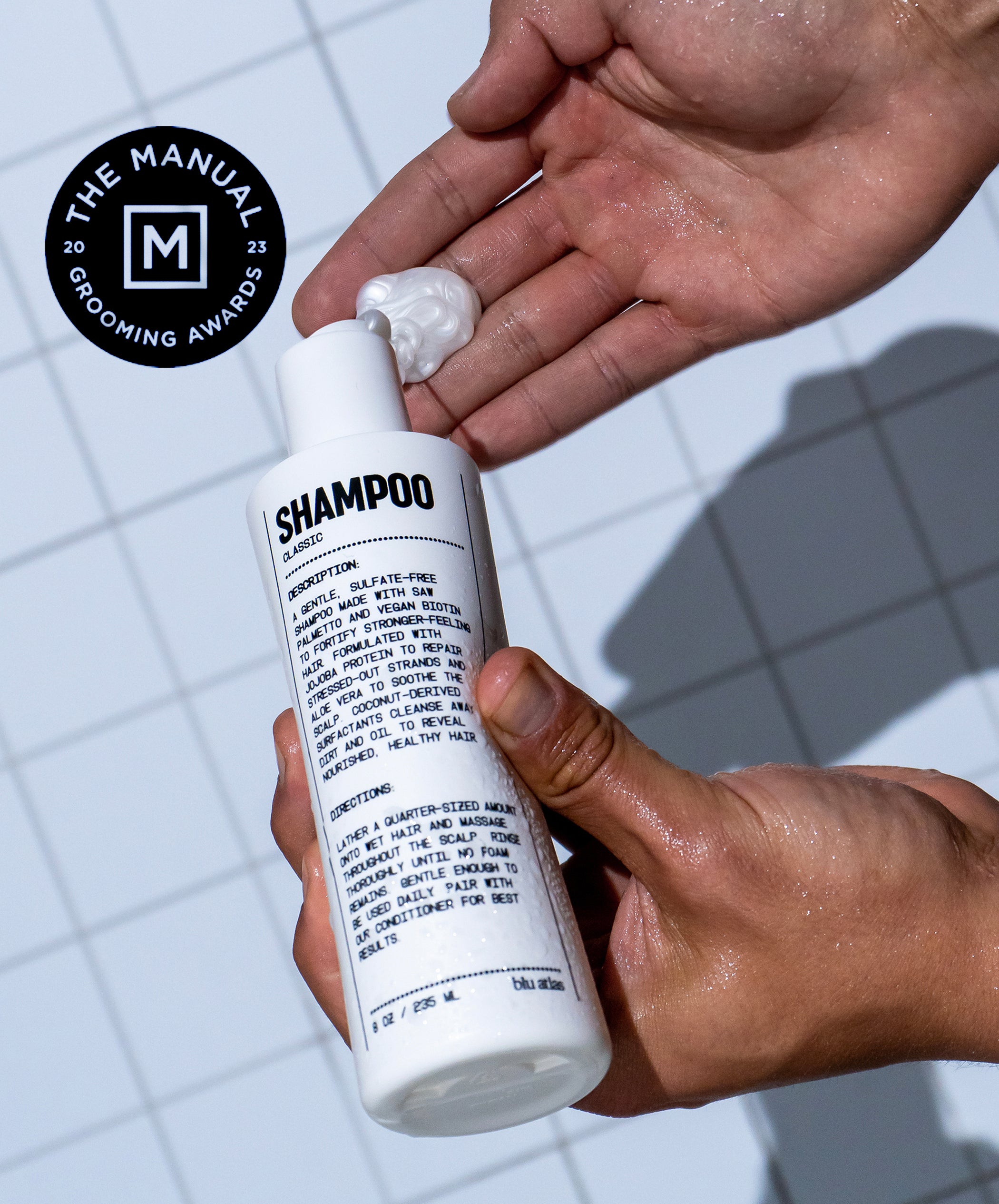So, you’re thinking about switching to vegan shampoo but still aren’t sure what the fuss is about? This article is for you. Vegan self-care products have been rising in popularity and have taken the wellness industry by storm.
But what makes vegan grooming products such a hot ticket item? In this article, we’ll cover the benefits of vegan shampoo, how to use it, and how to find the best vegan products for your hair.
What is Vegan Shampoo?
Vegan shampoo (and other vegan hair products) are items that don’t contain any animal-derived ingredients, including honey, collagen, lanolin, egg, yolk, beeswax, milk, or animal-derived biotin.
Instead, vegan shampoos are made with natural, plant-based ingredients and are cruelty-free. Vegan products are not tested on animals during development or production.
Benefits of Vegan Shampoo
Vegan shampoo is typically more nourishing to the hair and scalp than regular shampoo and promotes smooth, strong strands. Here are some of the benefits of using vegan grooming products.
Safe, Effective Ingredients
Most vegan formulas eliminate harsh “filler” ingredients that are rough on hair. (They also never contain animal ingredients or animal-derived ingredients.) Vegan shampoos are formulated with nutrient-dense, plant-based ingredients that provide rich vitamins and antioxidants.
Vegan formulas usually remove harsh ingredients such as parabens, sulfates, phthalates, artificial dyes, and fragrances.
Good for Your Hair and Scalp
Another important feature to consider when shopping for cleansers is what they can do for your scalp. Most vegan shampoo (and conditioner) formulas are gentle on the scalp and effectively remove excess oil, product buildup, dirt, and grime, leaving the hair follicles clean.
Ingredients to look for in vegan shampoo:
- Argan oil
- Aloe vera
- Avocado oil
- Black seed oil
- Castor oil
- Coconut oil
- Jojoba oil
- Murumuru butter
- Vegan biotin
Eco-Friendly
Vegan grooming products are better for your hair, scalp, and the environment. They are formulated with natural ingredients, use more sustainable packaging, and contain fewer artificial ingredients. The products are also cruelty-free and prioritize animal welfare by eliminating animal ingredients and testing during the creation and production of self-care items.
How to Use Vegan Shampoo
When you’re ready to hop in the shower and suds up, you can use a vegan shampoo like a regular cleanser. Replacing your normal shampoo is an easy way to upgrade your weekly hair care routine.
We know this isn’t your first rodeo, but here’s a few simple steps for cleaner hair:
- Squeeze a dime to quarter-sized amount of product into your hand.
- Lather it up between your hands before evenly distributing it all over your hair and scalp.
- Massage it into your scalp and ensure your hair is squeaky clean from top to bottom.
- Rinse it out with lukewarm or cool water before applying vegan conditioner.
Always follow up your shampoo with a vegan conditioner like a regular or leave-in conditioner.
What’s the Best Vegan Shampoo for Hair?

Blu Atlas Shampoo is the best vegan shampoo for all hair types. As a vegan, cruelty-free cleanser, it can elevate your grooming rituals by gently cleansing your hair with naturally derived ingredients.
Blu Atlas Shampoo harnesses plant-based ingredients like argan oil and aloe vera to hydrate the hair while the cleanser removes oil, dirt, and product buildup on the scalp. The formula is also free from parabens, sulfates, phthalates, and artificial fragrances.
To get the best results, follow up with Blu Atlas Conditioner. It locks in the right level of moisture and helps tame frizz, battle dryness, and help hair feel soft and nourished.
Vegan shampoos are better for your hair and the planet; what’s not to love?
Frequently Asked Questions
Is vegan shampoo good for your hair?
Yes, vegan shampoos are good for your hair because they are formulated with natural botanicals that are gentle and nourishing for the skin and hair. Vegan shampoo and conditioner are typically better for the hair and scalp because they don’t use harsh chemicals that stress out the body.
